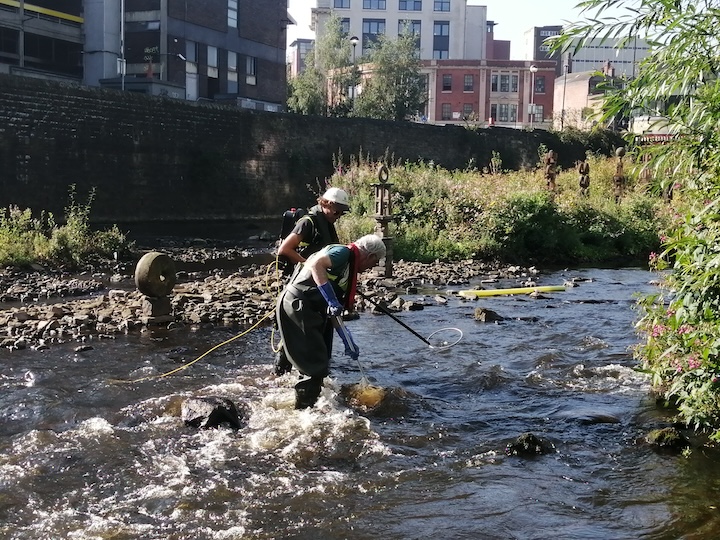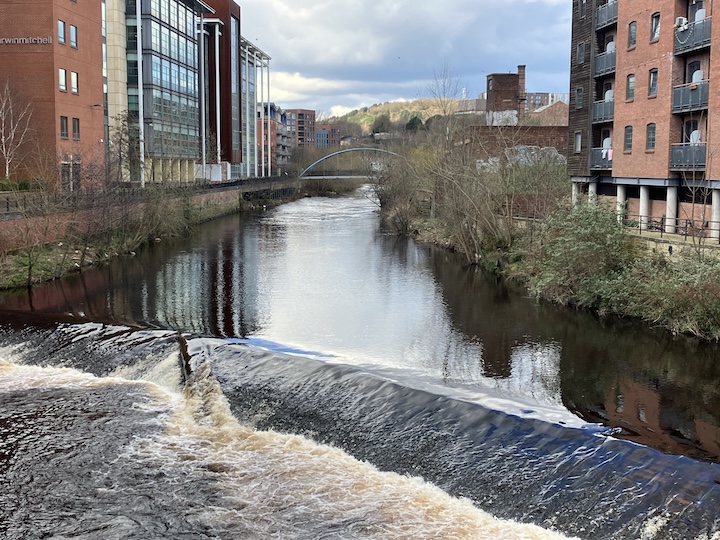A new report on UK rivers has found Sheffield’s River Don is in “poor” health, with ongoing pollution from sewage discharge and urban runoff the main concerns.
The pollution poses an urgent threat to wildlife, particularly aquatic plants such as algae.
“It’s disappointing,” said Geoff Guy, Manager of Riverlution, which restores River Don habitats. “If the system that exists for sewage isn’t putting the right thing in the right place, it’ll end up in the river.”
Yorkshire Water, which manages sewage in South Yorkshire, resorts to discharging sewage overflow during times of heavy rain and flooding. In 2022, a storm sewer managed by Yorkshire Water next to the Sheffield Wednesday football stadium in Hillsborough overflowed 100 times for a total of 665 hours. That sewer overflow went straight into the River Don.
Last autumn, Yorkshire Water announced they would raise water bills in South Yorkshire by £150 a year until 2030 to pay for the sewer network improvements needed to reduce discharge.
A Yorkshire Water spokesperson said: “We’re investing £180m in overflow improvements in the next two years, some of which operate in South Yorkshire.”
The company also plans to spend £1.4bn between 2025 and 2030, including some of the revenue from increased water fees, to reduce sewage overflows by 35%.
In addition to sewage, pollutants in the Don include high levels of flame-retardant chemicals, fabric stain protectors, mercury, ammonia, and pesticides. This is largely caused by urban runoff, such as chemicals and oil from cars washing from the roads into the river.
Ed Shaw, Managing Director of Don Catchments Rivers Trust, warned about the pollution caused by flea treatments people give to their pets. He said: “We’re particularly worried that dogs love jumping in rivers, and as a result that insecticide washes into the streams and the rivers and has a powerful effect.”
The State of Our Rivers report, published annually by The Rivers Trust, exposed that only 15% if Britain’s rivers are in good health. According to the report, none of the Sheffield’s five rivers are in good health.

Despite the Don’s overall poor health, one bright spot is the river’s fish. Brown trout are doing well in the river. Though the river’s weirs, built during Sheffield’s industrial past, are a barrier for fish traveling upstream to breed, restoration groups have been building fish passes into them that allow them to migrate.
“There’s no reason why salmon can’t live in the River Don,” said Mr Guy.
One advocacy group, the River Don Project, is even campaigning to have the river granted legal personhood, in the hopes it can help legally protect the river from pollution.
Alban Krashi, a rights of nature advocate who co-founded the project, said: “It doesn’t have to be this way. We have the understanding to support the River Don not only to survive, but to thrive.”




